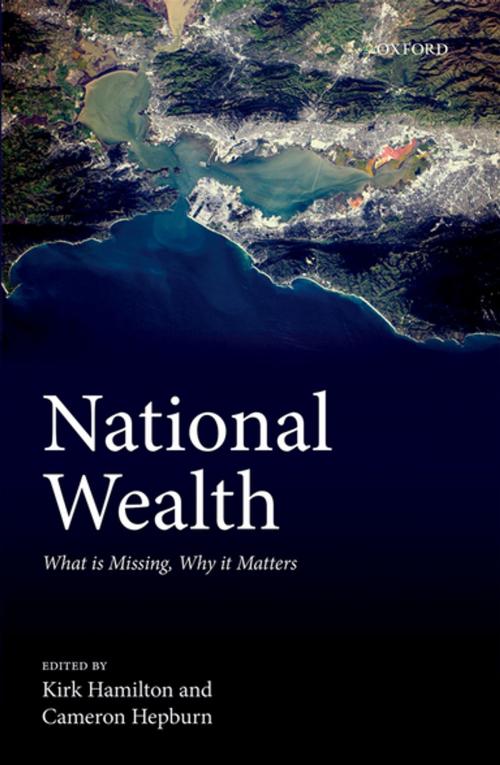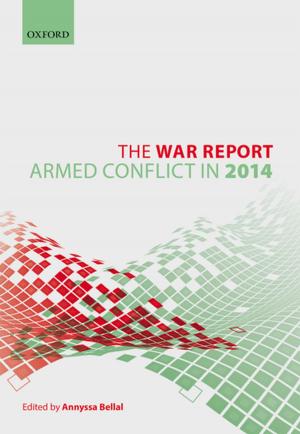National Wealth
What is Missing, Why it Matters
Business & Finance, Economics, Public Finance, Nonfiction, Social & Cultural Studies, Political Science| Author: | ISBN: | 9780192529091 | |
| Publisher: | OUP Oxford | Publication: | September 1, 2017 |
| Imprint: | OUP Oxford | Language: | English |
| Author: | |
| ISBN: | 9780192529091 |
| Publisher: | OUP Oxford |
| Publication: | September 1, 2017 |
| Imprint: | OUP Oxford |
| Language: | English |
Why are some nations wealthy and others poor? How did the wealthy nations become rich? What are the components of wealth? How should nations manage their wealth for the future? These are among the most important questions in economics. They are also impossible to answer without defining wealth, and understanding how it can be created, destroyed, stored, and managed. National Wealth: What is Missing, Why it Matters assembles a collection of high-quality contributions to define the key concepts and address the economic and policy issues around national wealth. It considers insights from economic history, addresses the impacts of the changes to national accounting, and teases out the policy implications for both rich and poor countries and the institutions within them. Using expert analysis and theory backed by empirical work, this book evaluates the progress that has been made in measuring national wealth, as well as the recent developments in theory and practice which tell us that the change in real wealth (net saving) is an essential indicator of economic progress. Net national saving, measured comprehensively and adjusted to reflect the investment in and the depreciation of the full range of assets measured in national wealth, is an indicator of the change in future wellbeing. Governments can use this measure to answer a fundamental question: How much does the stream of future wellbeing of the population rise or fall as a result of policy actions today? The book is organized into four parts. Part one provides the political context and defines the key concepts. Part two examines the history of wealth creation and destruction. Part three provides a more detailed analysis of the individual components of wealth, and finally, part four examines the lessons for managing wealth for sustainable national prosperity.
Why are some nations wealthy and others poor? How did the wealthy nations become rich? What are the components of wealth? How should nations manage their wealth for the future? These are among the most important questions in economics. They are also impossible to answer without defining wealth, and understanding how it can be created, destroyed, stored, and managed. National Wealth: What is Missing, Why it Matters assembles a collection of high-quality contributions to define the key concepts and address the economic and policy issues around national wealth. It considers insights from economic history, addresses the impacts of the changes to national accounting, and teases out the policy implications for both rich and poor countries and the institutions within them. Using expert analysis and theory backed by empirical work, this book evaluates the progress that has been made in measuring national wealth, as well as the recent developments in theory and practice which tell us that the change in real wealth (net saving) is an essential indicator of economic progress. Net national saving, measured comprehensively and adjusted to reflect the investment in and the depreciation of the full range of assets measured in national wealth, is an indicator of the change in future wellbeing. Governments can use this measure to answer a fundamental question: How much does the stream of future wellbeing of the population rise or fall as a result of policy actions today? The book is organized into four parts. Part one provides the political context and defines the key concepts. Part two examines the history of wealth creation and destruction. Part three provides a more detailed analysis of the individual components of wealth, and finally, part four examines the lessons for managing wealth for sustainable national prosperity.















